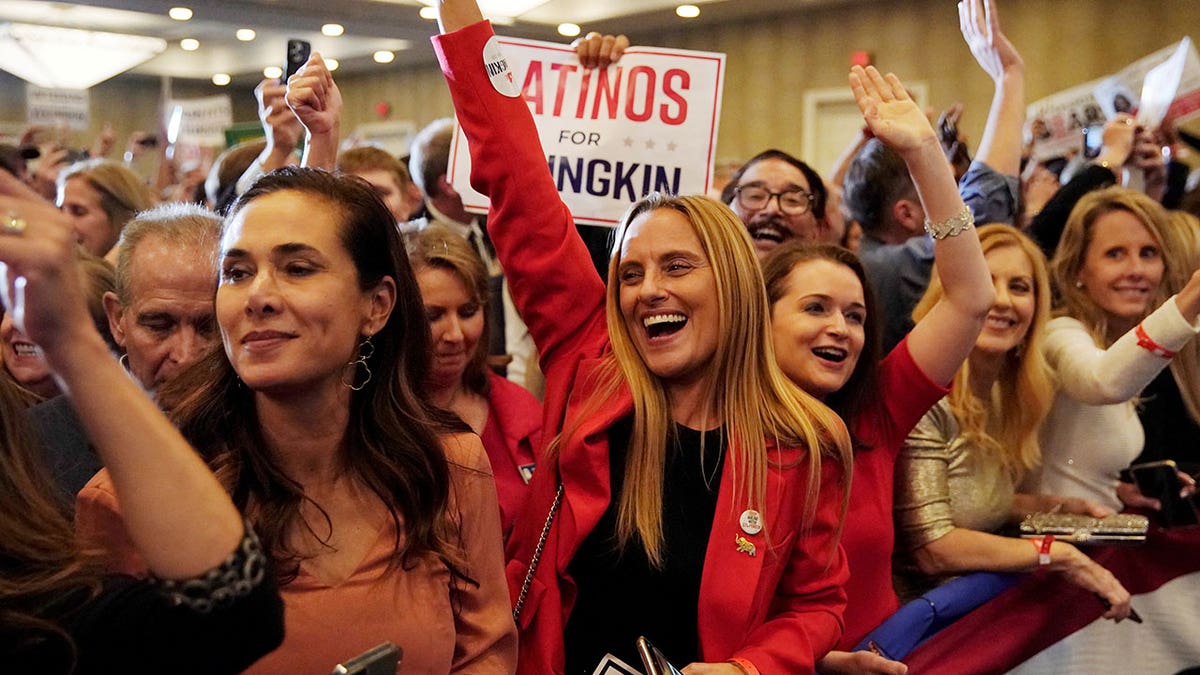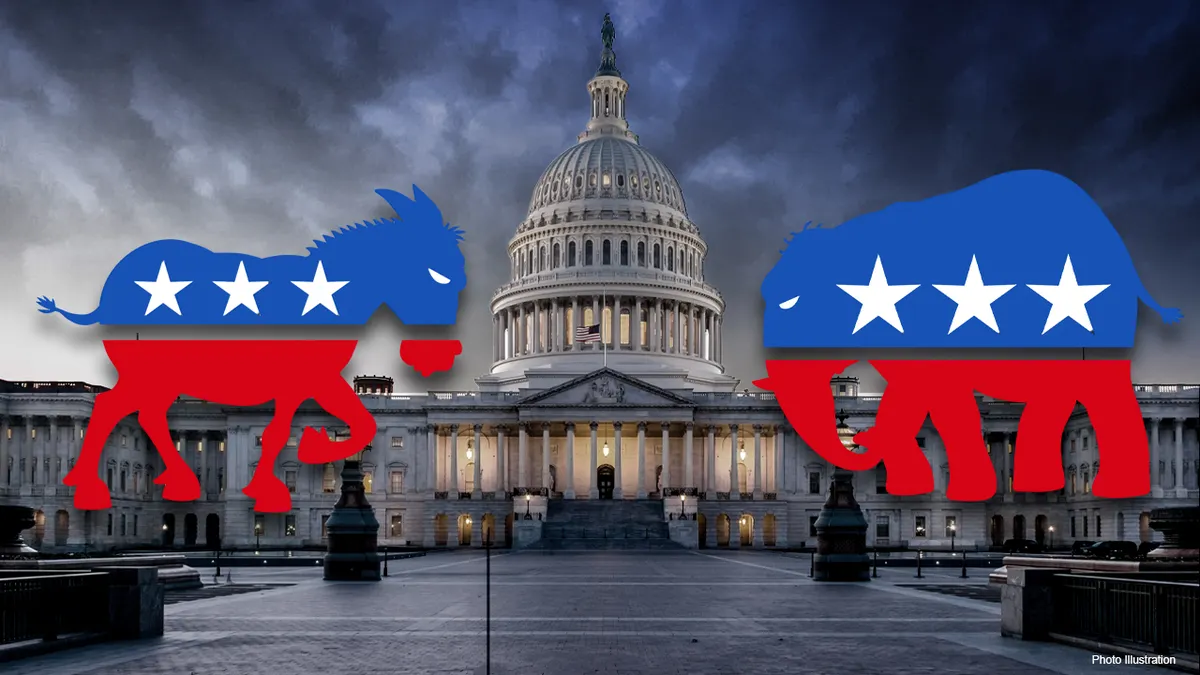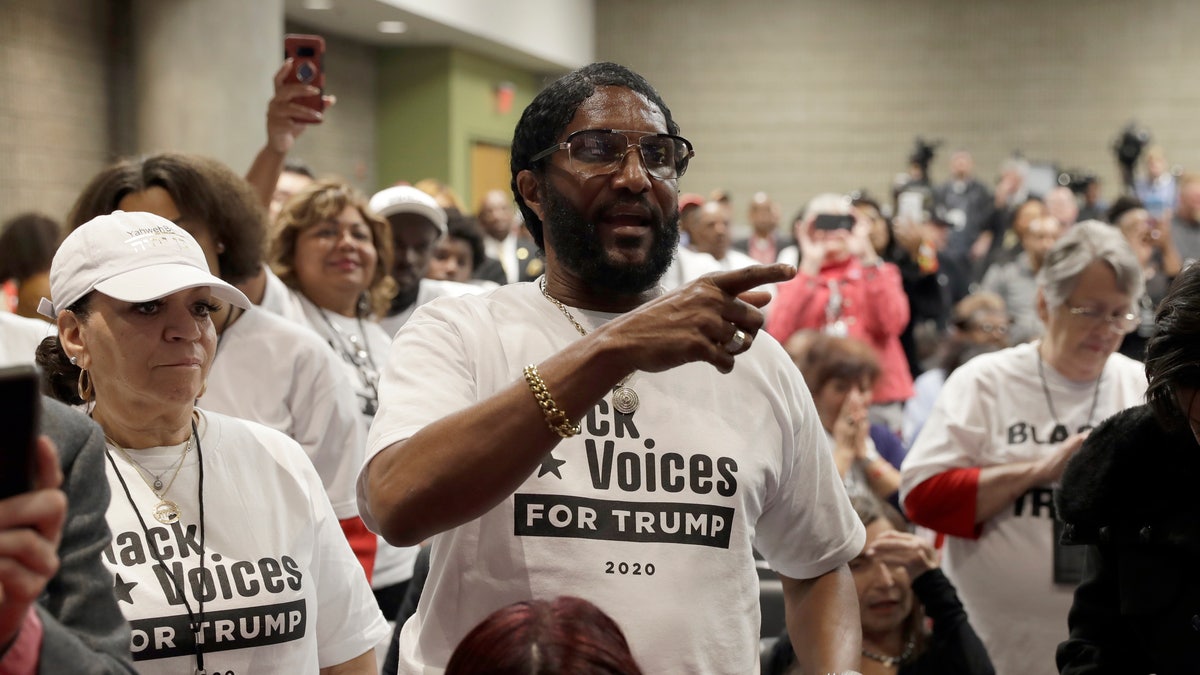ABC’s ‘The View’ goes off the rails as Sunny Hostin calls Black Republicans an ‘oxymoron’
ABC's liberal daytime gabfest "The View" went off the rails Friday as co-host Sunny Hostin referred to Black Republicans as an "oxymoron."
MSNBC opinion columnist Zeeshan Aleem suggested Friday that the GOP is becoming both more diverse and "white nationalist" at the same time.
"Republicans in Congress could be on the brink of becoming a lot more racially diverse. As The New York Times reports, 67 Black, Latino, Asian or Native American Republican candidates are on the ballot for seats in the U.S. House in November," Aleem began. "With only a dozen members of color among House Republicans right now, the historically diverse candidate roster could, if even moderately successful, make the GOP House caucus look considerably less pale."
The article noted further, "It may seem counterintuitive, but an increasingly white nationalist GOP does not foreclose the possibility of diversity among its ranks. Republicans are savvily using this reality to their advantage and are eager to weaponize it."
Aleem then said that Democrats and the left must "think more carefully about what it takes to attract voters of color."

Hispanic supporters of Republican nominee for Governor of Virginia, Glenn Youngkin, react as Fox News declares Youngkin has won his race against Democratic Governor Terry McAuliffe and Youngkin will be the next Governor of Virginia during an election night party at a hotel in Chantilly, Virginia, U.S., November 3, 2021. (REUTERS/ Elizabeth Frantz TPX IMAGES OF THE DAY)
LGBTQ BOOKS IN MICHIGAN SCHOOLS FORMS ‘UNEXPECTED ALLIANCE’ OF ARAB AMERICANS, GOP
Aleem noted that part of this shift occurred during the tenure of former President Donald Trump.
"Even while Trump was in office, there were indicators that an unapologetically nativist and bigoted GOP could work with minorities. In 2020, when Republicans snagged 14 seats in the House, almost every single seat they flipped from blue to red was with a minority or woman candidate," Aleem wrote. "And in a development that surprised many political analysts, Trump made decisive gains among Latino voters and women, and saw a slight uptick in Black support, in 2020 compared to 2016 (though he still didn’t win those groups)."
The piece claimed that some voters, despite not identifying as White themselves, were on the most far-right vanguard of "white nationalist" and "authoritarian" right-wing politics.
"There were also signs that the people of color are involved in — and at times, prominent leaders in — the most extreme elements of the white nationalist authoritarian right during the Trump era," Aleem wrote. "The chair of the Proud Boys is Latino. The main organizer of the ‘Stop the Steal rally’ was born to Black and Arab parents." He described this as "a phenomenon some scholars call ‘multiracial white supremacy.’"

Immigration has become a hotly contested issue within the Republic, but the Democratic Party's hard-left approach to social issues has driven some of their voters away.
DEMS LOSE GROUND TO REPUBLICANS WITH LATINO VOTERS AHEAD OF 2022 MIDTERM ELECTIONS
He suggested that part of the shift toward Republicans is because "just like white people, people of color are ideologically diverse and think about race and racism in a wide variety of ways." One of those ways cited was that "some conservative people of color who may find Trump’s vulgar racism objectionable would still rather throw their lot in with the GOP than the Democrats, particularly at a time when Democratic views on economic and social issues are swinging to the left."
According to Aleem, the Republican Party uses "diversity as a shield and a lance" because "Diverse candidates allow Republicans to deflect accusations of racism" and "catch the attention of a more diverse range of voters."

Supporters of then-President Donald Trump wait to listen to him speak during the launch of "Black Voices for Trump," at the Georgia World Congress Center, Friday, Nov. 8, 2019, in Atlanta. (AP Photo/ Evan Vucci)
CLICK HERE TO GET THE FOX NEWS APP
He concluded with the advice that Democrats "can’t take people of color for granted, and remember that those voters care just as much as white voters do about ‘kitchen table issues’ — and don’t have uniform or fixed ideological views on how to tackle them."

